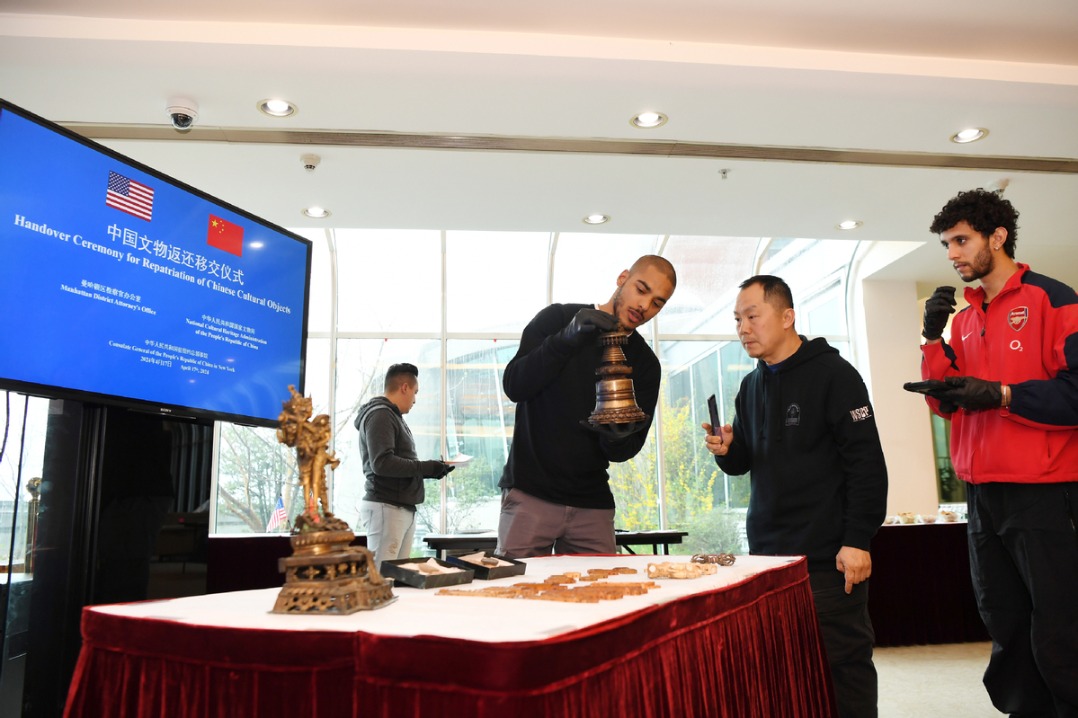Collaborative action called for on World Engineering Day
By Zhang Zhihao | chinadaily.com.cn | Updated: 2021-03-05 19:19
The world will need more equitable, collaborative and interdisciplinary engineering solutions to address challenges in achieving sustainable development goals, according to a reported published on Thursday by UNESCO and its partners.
The report was issued in celebration of the 2021 World Engineering Day for Sustainable Development on Thursday. It is the second report of its kind in a decade, providing comprehensive and authoritative insights on the engineering innovations that are shaping the world, as well as challenges in building engineering capacities, especially in developing countries.
World Engineering Day was created by UNESCO in 2019 to celebrate engineering achievements in advancing sustainable development, but also to raise social awareness for engineers and their profession, so that the younger generation, especially young women, could be interested in pursuing engineering as a career and become leaders in their respective fields.
The report was prepared in collaboration with the Chinese Academy of Engineering, the International Centre for Engineering Education based at Tsinghua University, the World Federation of Engineering Organizations and other international engineering organizations.
Li Xiaohong, the president of the Chinese Academy of Engineering, said that the global engineering community should do more to achieve the United Nations 2030 Agenda for Sustainable Development, as well as respond more effectively to global challenges including climate change, natural disasters, public health and food security.
"The engineering community has an undeniable responsibility," he said. "Whether these goals can be achieved is directly related to the development of engineering technology, which also requires joint efforts from the international engineering community."
However, Li said there is still an unbalanced distribution of engineering science and technology resources around the world. Innovative and high-quality engineering education also needs to be more accessible.
"Engineering education equality and capacity building support in underdeveloped countries is getting more urgent by the day," he said. "A global engineering community featuring equality, inclusiveness, diversity and win-win cooperation needs to be formed."
Gong Ke, WFEO president, said interdisciplinary, inter-sector and international collaboration are needed to invest in and strengthen the capacity of engineering innovations across the world, especially in developing countries, to tackle some of the world's most pressing problems.
These efforts can help "shape a peaceful, prosperous, inclusive and sustainable world for all people with no one left behind", he said.
The report provides examples of engineering innovations and practices that are helping to solving key global challenges and are contributing to achieving the sustainable development goals. However, it also highlights some issues in improving engineering capability, such as transforming engineering education to suit current needs and a lack of gender diversity in the engineering field.
When discussing details of the report, Marlene Kanga, former president of the WFEO, said engineers are essential for sustainable water supply and sanitation systems for the world, one of the UN sustainable development goals.
More than one billion people lack access to clean water and two billion lack access to basic sanitation, and these issues require integrated engineering solutions, she said.
For example, civil and environmental engineers can build clean water and sewage infrastructure and systems. Electrical and mechanical engineers are needed to ensure these systems operate reliably.
Other engineers can develop innovative materials for low-energy water treatment, which can contribute to the sustainable goal of clean energy, she added. "Nearly one billion people, mainly in sub-Saharan Africa and South Asia, still lack access to a reliable source of electricity."
To tackle this challenge, engineers have and should continue to find innovative, low cost solutions from renewable sources that are both accessible and environmentally friendly, she said.
"Low cost, accessible solar technology in developing countries is having significant impact on the social fabric and economies of these nations."























